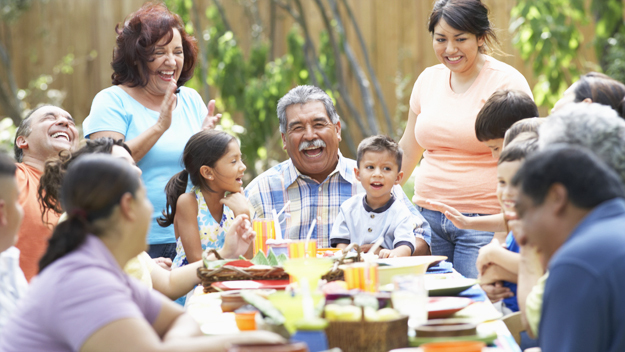By Hardy Jackson
Family reunions. Why?
Alice Walker’s characters in “The Color Purple” summed it up — “we all need a time when we can spend the day celebrating each other.”
That’s why. Each-otherness.
I can’t say for sure that the South has more of them, but we sure do have a lot and because we do, we have elevated “putting them on” to what one commentator called “an art form.”
Sure, families gather at other times. Christmas comes with seasonal regularity but for a variety of reasons Christmas no longer involved extended families (too much trouble to move “Santa” for the kids tops the list of why).
Families gather at weddings. Like Christmas, they are usually predictable (unless a shotgun is involved). However, weddings create families for future reunions. Their purpose is to celebrate the new, not reunite the old.
Funerals are reunions of a sort, but the very reason for gathering takes the fun out of the occasion.
But a family reunion, a get-together planned well in advance, held at a place that has meaning for those who attend, publicized so that it draws folks from far away who want to re-knot the tie that binds, these have Southern written all over them.
However, properly done reunions are more than a simple “get-together.”
They are confirmation of the links that defined each member –the bloodlines. Once it was the duty of the matriarch, the Grandmother or the Aunt (even better the Maiden Aunt) to preserve the connections. Often, they would put them on a chart that reminded author Florence King’s non-Southern father of “kennel papers,” “the stud register,” or “the book of the Dead.”
Then, with Alex Haley’s 1976 novel “Roots,” family history moved out of the matronly shadows and into the light of day.
In the aftermath of “Roots” genealogy became cool and family gatherings became swap meets where enthusiasts could exchange information on multi-great grandfathers who served with Washington, or was it Lee, or somebody.
Not surprisingly, the reunions that gained the most from the stir created by Haley’s book and the subsequent TV series were those held by African-American families.
And most of those were held in the South.
Today, African-American family reunions are big business. Check the internet under Family Reunions, Southern and more than half of the sites are maintained by companies that cater to black families that want to get together and enjoy it.
But in a way, an important way, what African American Southerners are doing reflects the whole family reunion phenomena down in Dixie.
During the first half of the 20th Century black Southerners left the South in what has been called the Great Migration. They settled in Northern cities but never lost their Southerness and never broke their ties with home. Some died before they could come back, but what they felt they passed on to their children and their children’s children. (No small number of white Southerners made the same trek and felt the same longing for what they left behind. If you don’t believe me, listen to Bobby Bare sing “Detroit City.”)
Now those displaced Southerners, white and black, want to come home and connect with what once was theirs. Which is where the food comes in.
Of all the things on display and enjoyed at a reunion – the photographs, the scrapbooks, the family Bible, and such – the most proudly displayed and thoroughly enjoyed is the food. Although the distance some folks travel to get there, and the location selected for the gathering often requires organizers to have a reunion catered, somehow it just isn’t the same unless someone brings “Aunt Jessie’s yeast rolls” or “Meme’s red velvet cake.”
Of all the senses that stir memory, taste is up there at the top, and since reunions are all about memory, it is understandable that food would rank among the expectations and, often, the disappointments – “it’s good, but not like Mama made.”
Old receipts are hauled out, tried out, and the results put out for all to enjoy.
The table spread becomes symbolic of what the family was, and what it has become – a big mound of “Uncle Claude’s barbeque” just like he would have made it if he was here, next to a pile of Kentucky Fried Chicken, taken out of the box and put on a platter to fool folks who can’t be fooled. The old and the new, the sacred and the profane.
And so the family gathers, greets, hugs, talks, eats, shares, and when the day is done, they return to the world where each lives.
Some reunions are reconciliations, times when old family feuds are settled and past differences put aside.
Some reunions are confirmations, a time when you discover that the cousin who was obnoxious when you were young is obnoxious still.
But most important, these reunions are a reason, an excuse, to celebrate the institution that has always been at the center of Southern life – the family. To thank the Lord that you have one. And, maybe, to feel a little sad for those who don’t.
Harvey H. (“Hardy”) Jackson is Professor Emeritus of History at Jacksonville State University. He can be reached at hjackson@cableone.net.

